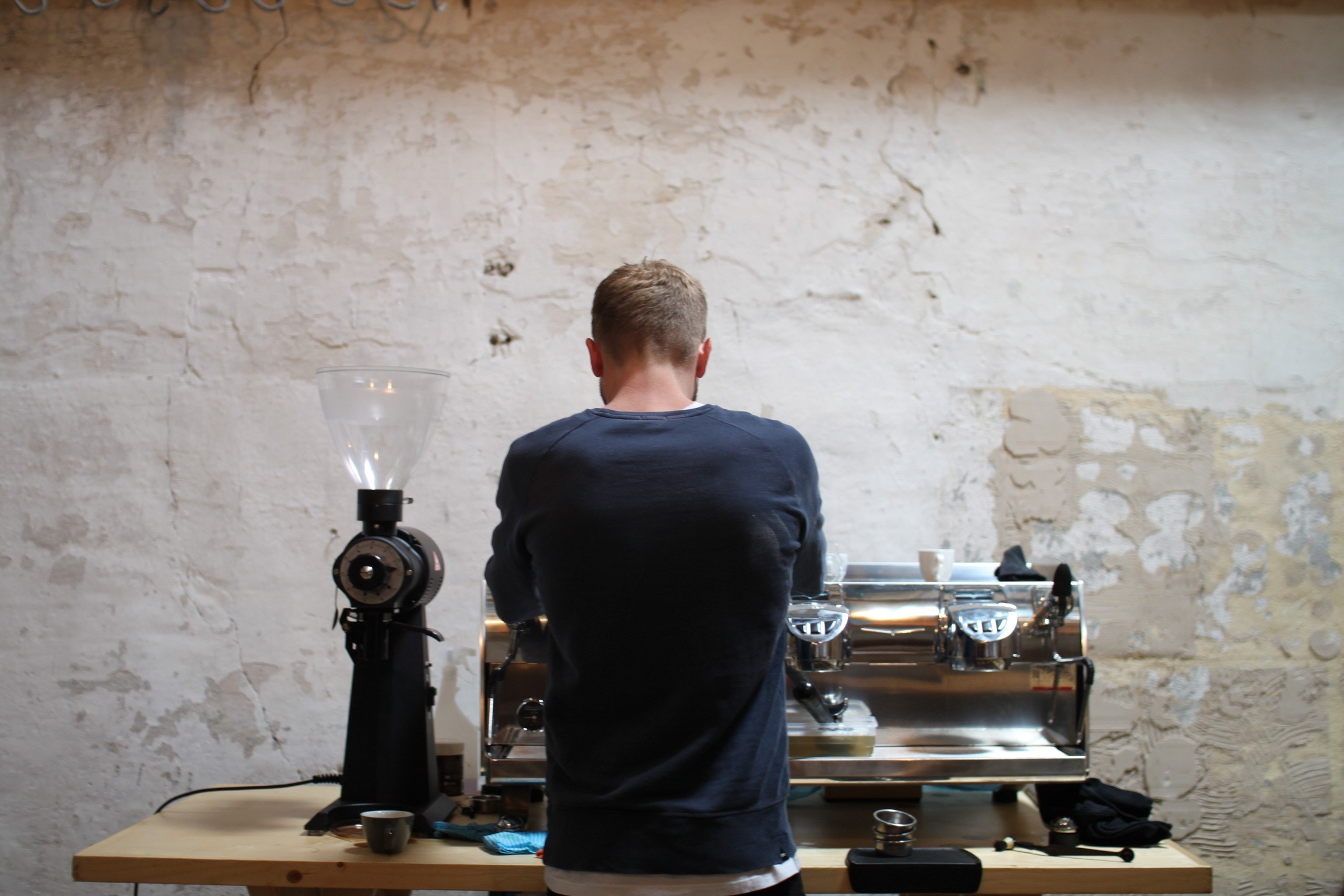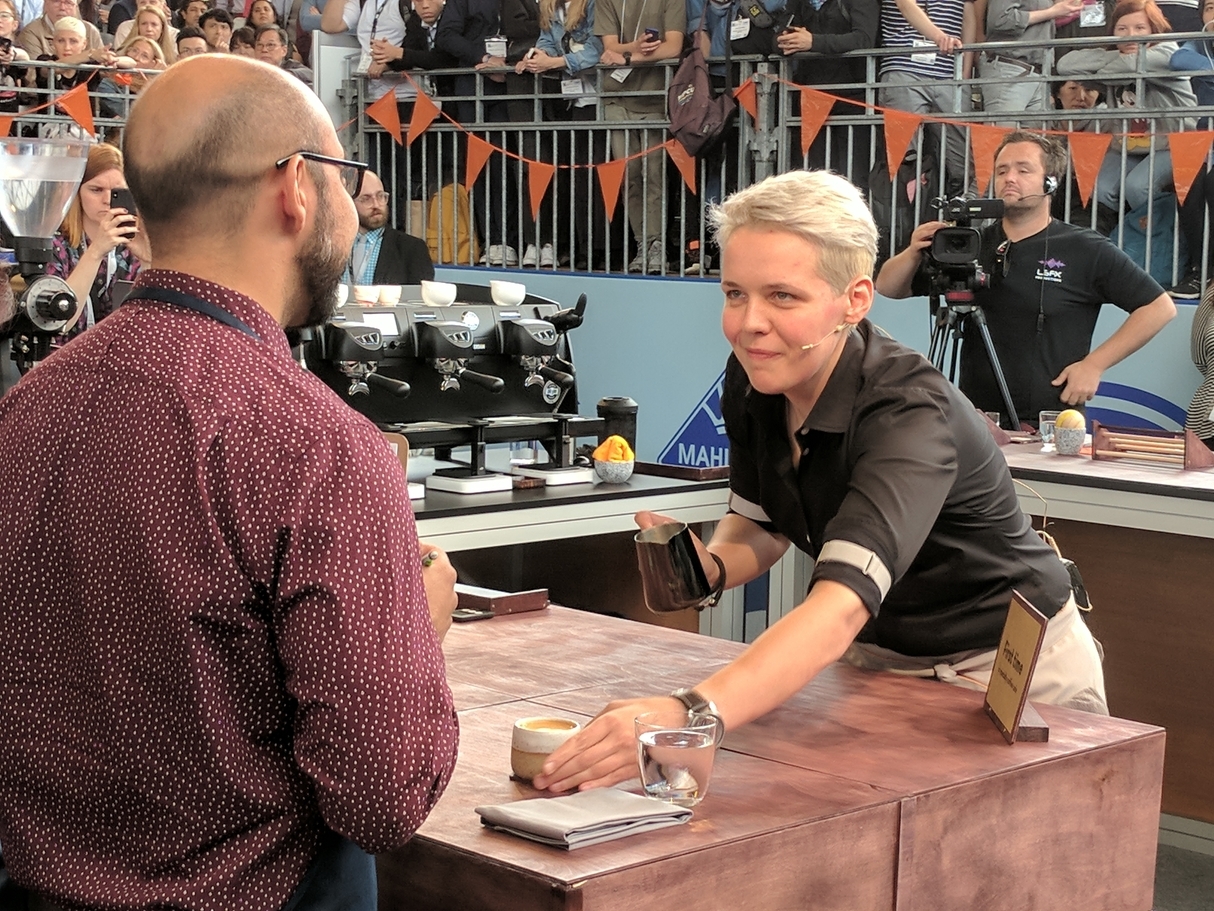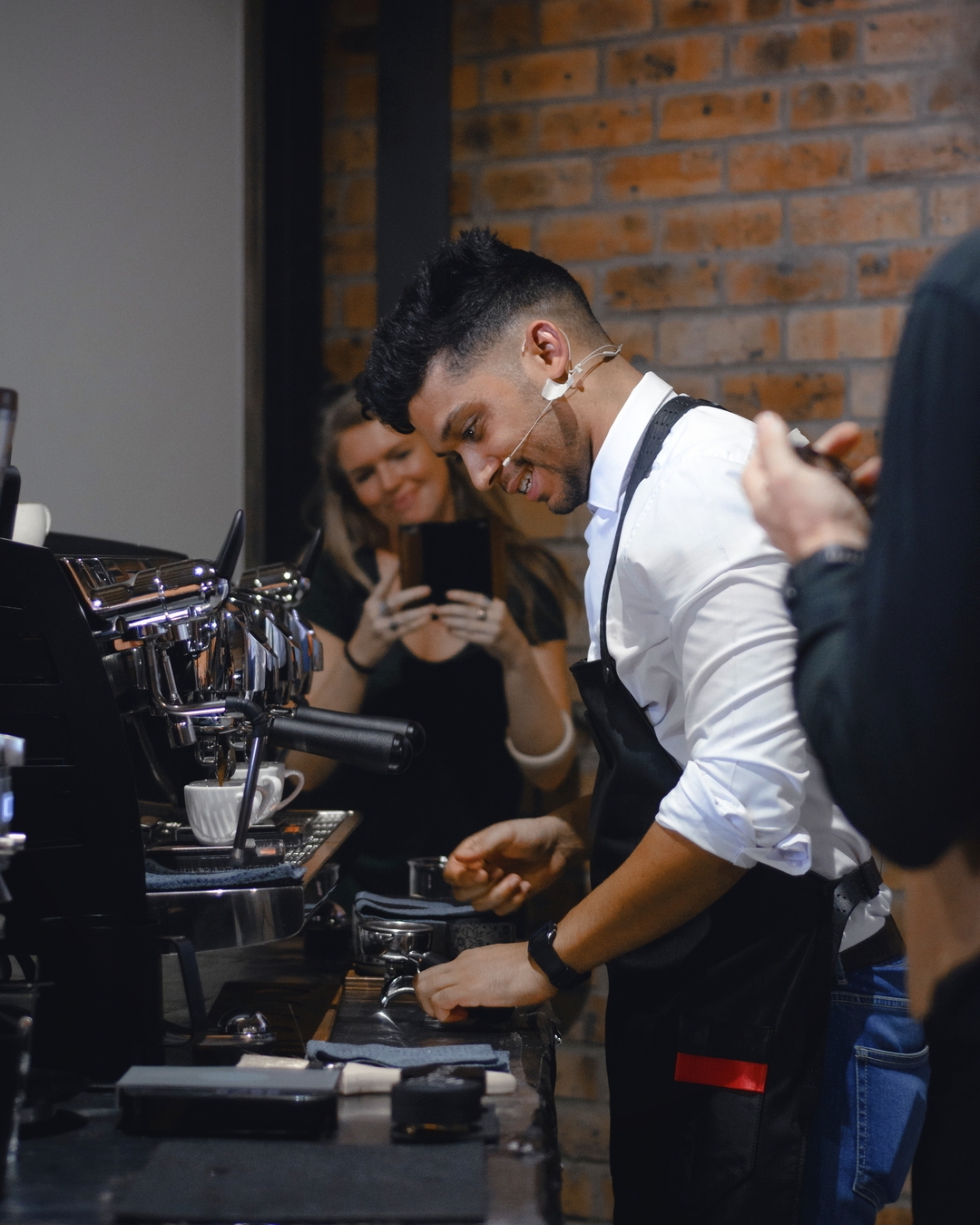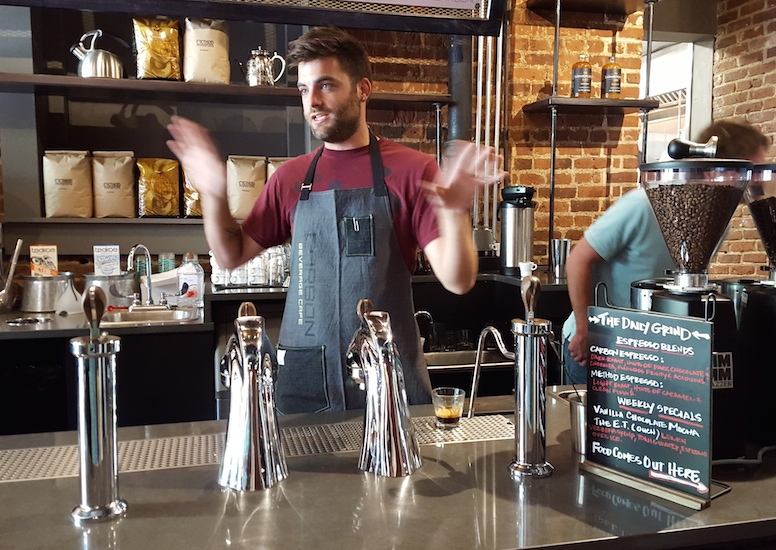
But unfortunately, people outside of the community don't necessarily see specialty coffee in this same positive light. Through cultural stereotypes and negative experiences, the barista community has received an unfair bad rap – baristas are characterized as pretentious, coffee know-it-alls, or inconsiderate or unaware of their customers needs.
Why has this happened? And what can the specialty coffee community do to reverse this perception, and make their world more accessible to everyday coffee drinkers? We talked to a few distinguished and insightful baristas in the industry – Agnieszka Rojewska, Lex Wenneker and Winston Thomas, all 2018 Urnex Ambassadors – about the issues that have deterred the community from better connecting with ordinary coffee consumers, and what the community as a whole can do to address this unique challenge and move the industry forward.
Why isn't specialty coffee accessible?
The idea of third wave coffee is very different than what most coffee drinkers are used to. Matt Milletto of Water Avenue Coffee told Perfect Daily Grind that the third wave concept is "a way of appreciating a quality product." Who could argue with that? We should all appreciate the hard work and dedication applied to each step of the coffee value chain, and we should all strive to prepare, or enjoy, the best cup of coffee possible.
But for the vast majority of people, there's a big disconnect between this concept of coffee and how it's viewed in real life. Coffee is functional, not emotional. People find themselves in line at a coffee shop most mornings for the most efficient method of daily caffeine intake before they shovel off to work, not for a new coffee experience. Given the option, a person outside the specialty coffee realm would likely choose their usual order of a one milk-two sugar iced coffee over an unfamiliar single origin specialty cup any day of the week.
Herein lies a fundamental human problem. Specialty coffee professionals see the latter as the clearly superior option. But most coffee drinkers are fixed in their morning coffee routine, and accustomed to drinking a lower quality brew, making it difficult try to steer them away from the taste preference that they have cemented over time. According to Lex Wenneker, founder of Friedhats Coffee in Amsterdam and second place finisher at this year's World Barista Championship, fear of the unknown is why many people don't seek out coffee that is labelled as "special".
"If you offer people something new, something they haven't tasted before, most people look at it with uncertainty," Lex said. "They don't know what it is. And when you get them to taste it, they're still a bit hesitant because it also tastes very different than what they are used to."

But the amount and depth of coffee knowledge can backfire for a barista trying to engage customers in the café. While a coffee professional would be thrilled to talk at length about a coffee’s details in origin and flavor characteristics, most people expect a transactional exchange to get their cup of coffee as quickly as possible. Alternatively, non-coffee professionals might not have enough knowledge to ask the right questions to their baristas (most have no idea that coffee comes from a cherry, let alone that there are thousands of varieties of these cherries). So any additional coffee information could be confusing or even off-putting.
This information gap is one aspect that prevents specialty coffee shops from welcoming new customers. Agnieszka Rojewska is the 2018 World Barista Champion, and she realizes that baristas have developed a specific knowledge of coffee, but sometimes forget that ordinary customers don’t have the same information or interest.
“When a new customer enters our shop, we use the wrong tools to enhance their experience,” Agnieszka said. “Instead of focusing on their needs, we pressure them, in a way, to enjoy coffee as we do, forgetting that their expectations might be different.”

This perception is problematic for coffee shops. Working on the front lines of cafés, baristas assume the role of gatekeepers and ambassadors for their industry – it’s their responsibility to create genuine connections with customers and make them feel comfortable in their environment. But if that doesn’t happen, first-time visitors aren’t likely to make a return trip.
Winston Thomas, two-time Barista Champion of South Africa, had a personal experience that nearly turned him off to specialty café culture. He remembers a time he once ordered a cappuccino with cold milk, when what he actually wanted was an Americano with cold milk. But when the barista asked him if he was sure, he went along with it.
“I was afraid to back out and look silly,” Winston said. “I think people can be intimidated when walking into a foreign space with more options than what they are used to.”
How can we make specialty coffee more accessible?
While there’s no single answer to suddenly draw in hordes of new specialty coffee drinkers, there is one word that will go a long way for baristas to create stronger bonds with customers: empathy. It’s the basic tenant of customer service – to put yourself in the shoes of the person you’re interacting with. Simply knowing that a customer could be feeling hesitant or intimidated by a new coffee experience helps a barista immensely in approaching a conversation with them.
Winston said that when he engages with customers, he feels it is important to talk to a customer as an equal, and to avoid throwing out any serious coffee jargon, which would make them feel inferior. He just wants to help customers understand what coffee is all about.
“It is the barista’s responsibility to make customers feel comfortable, and in this case, it is less about the coffee and more about hospitality and service,” Winston said. “A smile and some patience can go a long way to bringing customers over to the specialty realm.”

There are also ways to engage consumers by more effectively managing the physical space available inside a coffee shop. The Modbar brand was created with the goal of better customer service front and center – the inner workings of the Modbar machine are tucked underneath the counter, unlike most espresso machines that sit squarely between the barista and the customer on a counter. Eliminating this physical barrier creates a more transparent and open experience for a customer to talk to a barista and see how a coffee beverage is prepared with their own eyes.
Some cafés are using their spaces to help educate their consumers on different aspects of coffee. Verve Coffee Roasters, based in Santa Cruz, CA, has established a farm level bar that shows direct relationship of farmers, processing methods and journey of coffee from seed to cup. Other cafés have employed printed materials at the customer’s point-of-sale to showcase additional information about the day’s coffee offering, its flavor characteristics or origin, or the shop’s philosophy on how it sources or roasts its coffee. And in the instance of the Counter Culture Training Center in New York, some coffee companies will invite the public into their space to cup coffee, allowing them to explore the different taste experiences that are possible with specialty coffee first-hand.

But if baristas think about coffee with a customer-first mindset, and understand how each customer’s perspectives or needs are never exactly the same, passion and appreciation for specialty coffee will grow. One customer at a time.
“A customer that comes in for the first time, I hope to inspire, or at least change their view on coffee,” Lex said. “A customer that comes in more often, I just want them to think ‘ah yes, that was a really nice coffee.’”

